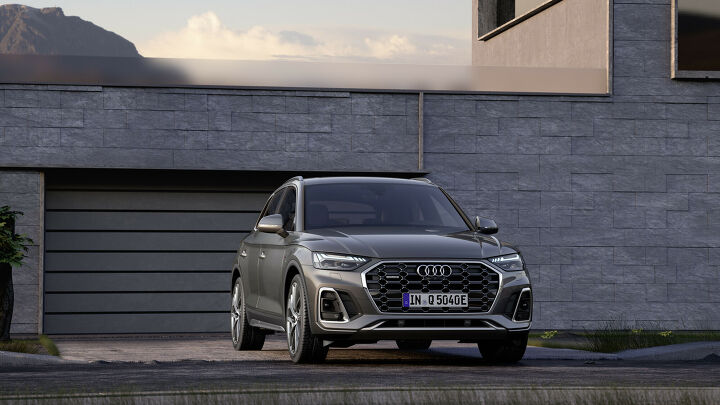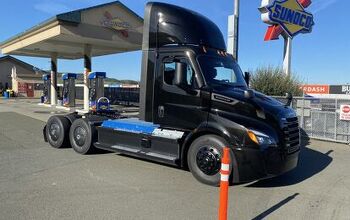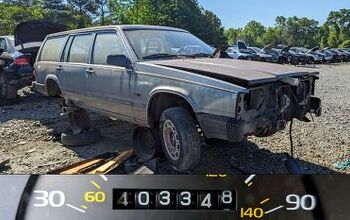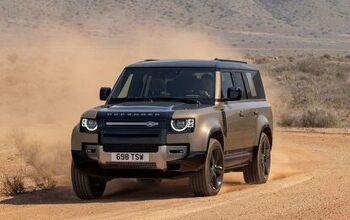Imported Audi, Porsche, and Bentley Models Held Back Over Forced Labor Allegations

Thousands of vehicles manufactured under the umbrella of Volkswagen Group are being held at U.S. ports for allegedly violating the Uyghur Forced Labor Prevention Act (UFLPA). Enacted in 2021, the law is supposed to prohibit the utilization of slave labor in Western China. While the impacted automakers include Porsche, Bentley and Audi, we’ve seen plenty of brands being accused of leveraging forced labor in the Xinjiang region of China, where the country is said to have forcibly concentrated the Uyghur ethnic minority.
The actions the Chinese government has been accused of committing within the region are as horrendous as they are vast. But we’re only interested in the forced labor claims, which date back to roughly 2017 when the first modern reduction and detainment centers were established. Numerous automakers have either been accused of using suppliers that participated in forced labor since then. Concerns have revolved around aluminum, steel, and copper sourcing, tire manufacturing, battery production, and a slew of parts suppliers said to be employing people against their will.
China has defended what’s happening in Xinjiang as an educational program designed to uplift and modernize the Uyghur population in a manner that spurs economic growth. However, numerous human rights organizations and the UN’s top human rights body have suggested the nation may be committing “crimes against humanity.”
Reports have faulted Chinese brands like BYD and Western companies like Audi, Volkswagen, BMW, Mercedes-Benz, Toyota, General Motors, and Ford Motor Co. as having participated (often via Chinese subsidiaries and suppliers) in forced labor practices. Volkswagen Group has often received the most attention, however, likely due to its strong presence in China and an unsavory past where it utilized slave labor during the Second World War.
According to a report from the Financial Times, thousands of Porsche, Bentley and Audi vehicles have been impounded so U.S. authorities could conduct a proper investigation. The big concern of late has been the industrial procurement of aluminum created via forced labor. Before that, VW was being accused of having smaller suppliers manufacturing small electronic components that were similarly believed to be in violation of U.S. custom laws. That item has come up again, resulting in thousands of Audi products, hundreds of Porsches, and some Bentley vehicles all being held back.
From FT:
In a statement, VW said it “takes allegations of infringements of human rights very seriously, both within the company and in the supply chain” including “any allegations of forced labour”.
It added: “As soon as we received information of allegations regarding one of our sub-suppliers, we have been investigating the matter. We will clarify the facts and then take appropriate steps. These may also include the termination of a supplier relationship if our investigations confirm serious violations.”
Questions around forced labour found within its Chinese supply chain are particularly sensitive for VW, which has been facing mounting pressure from human rights groups and investors alike over a facility it jointly owns in Xinjiang’s capital, Urumqi.
The German car company on Wednesday said it would discuss “the future direction of business” in the Xinjiang region with its Chinese joint venture partner SAIC, following the publication of fresh allegations of forced labour in German media.
While your author is often pretty down on China and despises slavery in all formats, it seems plausible that the above is more about discouraging automakers from using Chinese labor than actually trying to solve what’s happening in Xinjiang. The situation certainly looks bad and there are loads of historic examples where the Chinese government has egregiously persecuted dissenting ethnic, religious, and political groups. But it’s hard to gauge how much more U.S. authorities care about that vs tweaking regional trade imbalances.
We’ve also seen more than just Volkswagen Group being accused of having benefited from forced labor over the last few years. But some domestic brands with similarly deep ties to China (e.g. General Motors) don’t seem to fall under the same levels of scrutiny. That said, Ford has fallen under harsh criticism for the alleged Chinese involvement at its new battery plant in Michigan.
Volkswagen has said it plans to contact customers to let them know about the status of the vehicles they ordered in case the investigation causes a delay. It’s assumed that the individual brands will find alternative modules, assuming they’re from facilities utilizing forced labor. But this is likely another black eye for Volkswagen Group and the company will probably need to go out of its way to avoid bad press on the topic moving forward.
[Image: Volkswagen Group]
Become a TTAC insider. Get the latest news, features, TTAC takes, and everything else that gets to the truth about cars first by subscribing to our newsletter.

A staunch consumer advocate tracking industry trends and regulation. Before joining TTAC, Matt spent a decade working for marketing and research firms based in NYC. Clients included several of the world’s largest automakers, global tire brands, and aftermarket part suppliers. Dissatisfied with the corporate world and resentful of having to wear suits everyday, he pivoted to writing about cars. Since then, that man has become an ardent supporter of the right-to-repair movement, been interviewed on the auto industry by national radio broadcasts, driven more rental cars than anyone ever should, participated in amateur rallying events, and received the requisite minimum training as sanctioned by the SCCA. Handy with a wrench, Matt grew up surrounded by Detroit auto workers and managed to get a pizza delivery job before he was legally eligible. He later found himself driving box trucks through Manhattan, guaranteeing future sympathy for actual truckers. He continues to conduct research pertaining to the automotive sector as an independent contractor and has since moved back to his native Michigan, closer to where the cars are born. A contrarian, Matt claims to prefer understeer — stating that front and all-wheel drive vehicles cater best to his driving style.
More by Matt Posky
Latest Car Reviews
Read moreLatest Product Reviews
Read moreRecent Comments
- Jeanbaptiste 2022 Tesla model 3 performance ~35000 miles tires - ~$1000ish. Several cabin filters ~$50
- El scotto No rag-top, no rag-top(s) = not a prestigious car brand. Think it through. All of the high-end Germans and Lexus have rag-tops. Corvette is really its own brand.World-leading engines. AMG, M, S and well Lexus is third-world tough. GM makes one of the best V-8s in the world in Bowling Green. But nooooo, noooo, we're GM only Corvettes get Corvette engines. Balderdash! I say. Put Corvette engines in the top-tier Cadillacs. I know GM could make a world-class 3.5 liter V-6 but they don't or won't. In the interior everything that gets touched, including your butt, has to feel good. No exceptions.Some think that those who pay above MSRP and brag about it are idiots. Go the opposite direction, and offer an extended 10-year 100,000-mile factory warranty. At a reasonable price. That's Acura's current business model.
- Carrera 2014 Toyota Corolla with 192,000 miles bought new. Oil changes every 5,000 miles, 1 coolant flush, and a bunch of air filters and in cabin air filters, and wipers. On my 4th set of tires.Original brake pads ( manual transmission), original spark plugs. Nothing else...it's a Toyota. Did most of oil changes either free at Toyota or myself. Also 3 batteries.2022 Acura TLX A-Spec AWD 13,000 miles now but bought new.Two oil changes...2006 Hyundai Elantra gifted from a colleague with 318,000 when I got it, and 335,000 now. It needed some TLC. A set of cheap Chinese tires ($275), AC compressor, evaporator, expansion valve package ( $290) , two TYC headlights $120, one battery ( $95), two oil changes, air filters, Denso alternator ( $185), coolant, and labor for AC job ( $200).
- Mike-NB2 This is a mostly uninformed vote, but I'll go with the Mazda 3 too.I haven't driven a new Civic, so I can't say anything about it, but two weeks ago I had a 2023 Corolla as a rental. While I can understand why so many people buy these, I was surprised at how bad the CVT is. Many rentals I've driven have a CVT and while I know it has one and can tell, they aren't usually too bad. I'd never own a car with a CVT, but I can live with one as a rental. But the Corolla's CVT was terrible. It was like it screamed "CVT!" the whole time. On the highway with cruise control on, I could feel it adjusting to track the set speed. Passing on the highway (two-lane) was risky. The engine isn't under-powered, but the CVT makes it seem that way.A minor complaint is about the steering. It's waaaay over-assisted. At low speeds, it's like a 70s LTD with one-finger effort. Maybe that's deliberate though, given the Corolla's demographic.
- Mike-NB2 2019 Ranger - 30,000 miles / 50,000 km. Nothing but oil changes. Original tires are being replaced a week from Wednesday. (Not all that mileage is on the original A/S tires. I put dedicated winter rims/tires on it every winter.)2024 - Golf R - 1700 miles / 2800 km. Not really broken in yet. Nothing but gas in the tank.


































Comments
Join the conversation
"However, numerous human rights organizations and the UN’s top human rights body have suggested the nation may be committing “crimes against humanity.”
May be committing? that's like saying the Pope may be Catholic. The UN Human rights council is an effing joke. Look at some of their members. Its equivalent to having MS-13, the Bloods, the Crips and the Latin Kings be part of a Police Gang Taskforce. WTF
VW also operates a joint venture plant in the western Xinjiang region with SAIC and is trying to end its association with the JV, because SAIC may have used forced labor to build a test track near the plant.